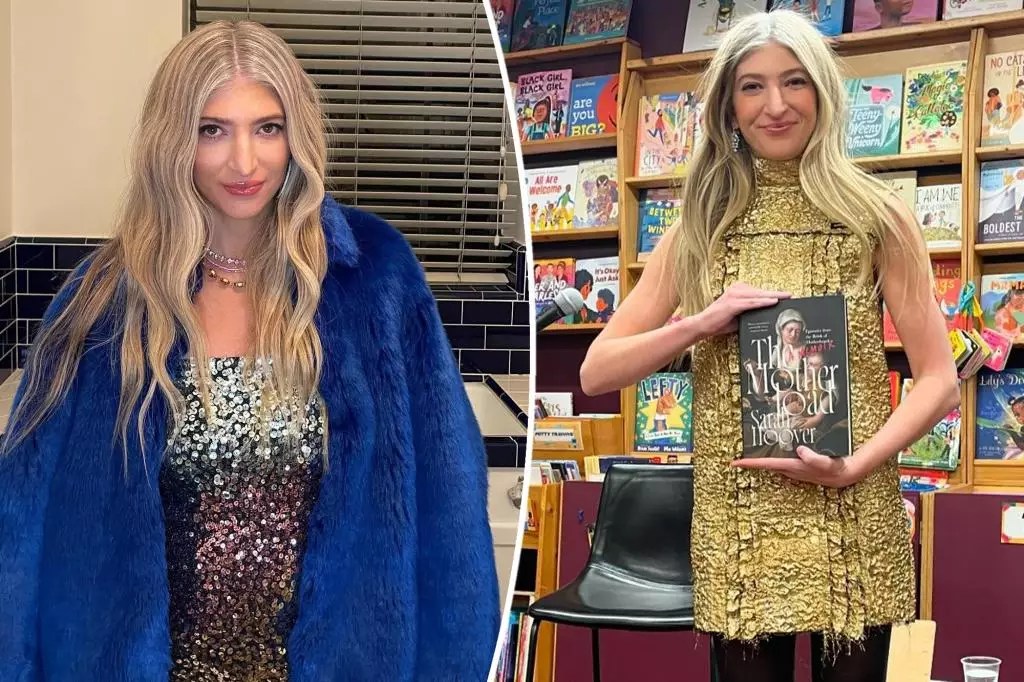In the realm of literature, memoirs often serve as intimate windows into the author’s life. However, when personal narratives extend to delicate topics like stillbirth, the line between artistic expression and ethical boundaries can blur perilously. Sarah Hoover, a rising literary figure, has recently faced intense scrutiny from her estranged sister, who claims that Hoover’s memoir, “The Motherload,” exploits their shared tragedy in a way that disregards familial trust and privacy.
The heart-wrenching accusations reveal a familial schism that is not merely personal but indicative of broader ethical concerns in memoir writing. When Hoover’s sister learned that her most private anguish had been publicly narrated in a widely celebrated book, it triggered an emotional storm. In an age when the audience demands authenticity and vulnerability from writers, one must wonder: what are the costs of such authenticity?
Private Pain in the Public Domain
Hoover’s sister describes a profound sense of betrayal stemming from her sibling’s decision to include detailed accounts of her stillbirth—an experience she had specifically requested Hoover not to disclose. Her claims suggest not only an emotional rupture but also a profound sense of violation. The online platform Reddit became the chosen stage for her candid expression of grief and outrage, where she described how the personal became public without her consent or knowledge.
This incident raises significant questions about the responsibility that comes with memoir writing. Just because an incident is part of someone’s life narrative does not automatically grant them the right to unilaterally share it. The ethical implications are vast; when does storytelling transform from a powerful tool of sharing into an act of exploitation? For readers, the consumption of such stories demands a balance between empathy and discernment.
Claims of Fabrication and Manipulation
Adding another layer of complexity to the narrative, Hoover’s sister alleges that her sister fabricated elements of the story, including the details surrounding her interactions with the deceased child. These claims portray Hoover not just as a storyteller but as a potential manipulator of her sister’s pain for personal gain. It’s a chilling assertion that scrutinizes the integrity of Hoover’s recollections and casts a shadow over the legitimacy of her memoir.
The backlash from this controversy also shines a spotlight on the publishing industry’s responsibility when it comes to sensitive subject matter. As “The Motherload” gained acclaim and attention, the collective silence from both Hoover’s team and her publisher—Simon Element—suggests a reluctance to address uncomfortable truths that lie beneath the surface of artistic expression. By not commenting on the allegations, they face accusations of complicity in what could be seen as a betrayal of a familial bond for the sake of narrative flair.
The Internet’s Role in Family Feuds
The rise of platforms like Reddit indicates a shifting paradigm in how personal disputes are aired. With a community of millions, the sister’s post garnered attention and support, turning a private family feud into a public spectacle. This phenomenon exemplifies how social media shapes public narratives today, giving voice to individuals who might otherwise remain unheard. However, it simultaneously raises ethical questions about public sentiment and mob accountability: should the online community serve as judge and jury in such intimate matters?
Moreover, how does this digital engagement influence the parties involved? The sister’s declaration that her life has been irrevocably altered by the memoir resonates with a growing discomfort around how stories of personal loss are perceived and narrated online.
A Broader Discussion About Privacy and Publishing
This incident transcends the personal realm of Hoover’s family and invites a larger conversation about privacy in the age of memoirs. Many writers view their lives as open canvases, but the ethical ramifications of sharing sensitive experiences loom large. What do authors owe the individuals intertwined in their narratives? Navigating these waters demands not just a skillful pen but a moral compass that guides decisions on what is shared and what remains sacred.
Therefore, as audiences devour stories that claim authenticity, they must also grapple with the complexities of morality and truth in the narratives they embrace. The tale of Sarah Hoover and her sister serves not only as a familial crisis but as a profound contemplation on the ethics of storytelling in a time where boundaries often dissipate in favor of public fascination.







Leave a Reply